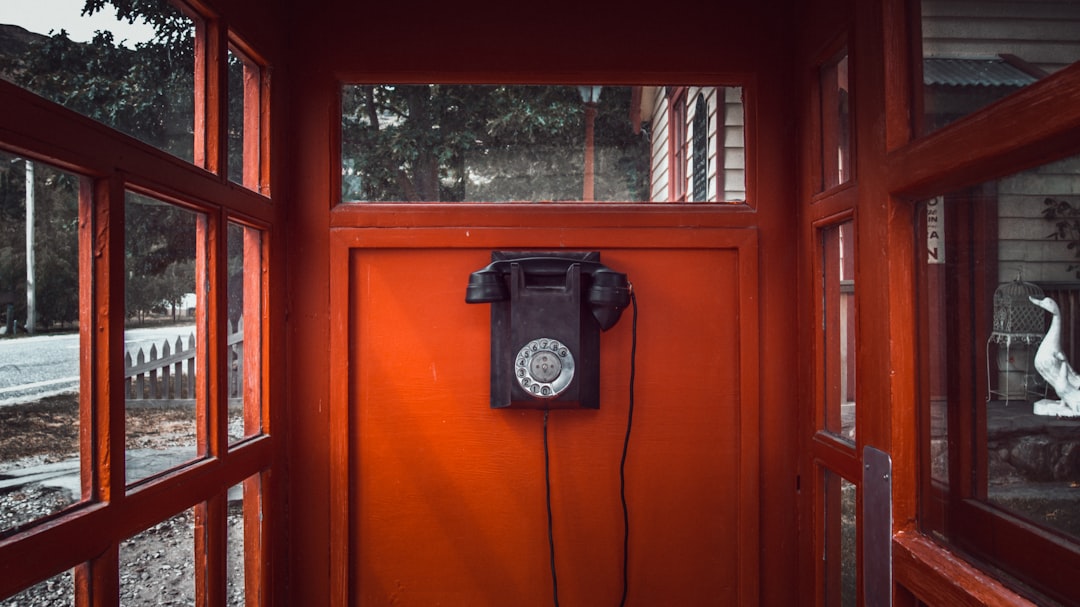In DC, the Telephone Consumer Protection Act (TCPA) safeguards against spam calls. Residents can register on the National Do Not Call Registry, block numbers, and use apps, but if these measures fail, consulting a TCPA lawyer is advised. California-based experts specialize in TCPA law, helping clients understand rights, file complaints, seek damages, and enforce compliance to stop nuisance calls. Engaging a skilled TCPA attorney or law firm in California is crucial for reclaiming peace of mind from relentless spam calls.
In the digital age, automated calls to cell phones have become a ubiquitous nuisance, especially in densely populated areas like Washington D.C. Understanding and navigating the complexities of the Telephone Consumer Protection Act (TCPA) is crucial for District of Columbia residents seeking relief from unwanted spam calls. This article guides you through your rights, effective strategies to stop spam calls, and when to consult a TCPA lawyer in California—a leader in consumer protection legislation. Learn how to combat telemarketer tactics, the role of regulatory bodies like the FTC, and legal solutions for businesses. Discover how to reclaim control over your phone lines with our comprehensive insights.
- Understanding Spam Calls and TCPA Law in the District of Columbia
- Your Rights as a DC Resident Against Unwanted Automated Calls
- Strategies to Stop Spam Calls: Do-Not-Call Lists and Registrations
- Engaging a TCPA Lawyer California: When and Why to Take Legal Action
- Common Tactics Used by Telemarketers and How to Combat Them
- The Role of the FTC and Consumer Protection in Regulating Spam Calls
- Effective Solutions for Businesses: Preventing Automated Call Spams Legally
Understanding Spam Calls and TCPA Law in the District of Columbia
In the District of Columbia, understanding spam calls and their regulatory framework is crucial to protecting your privacy. Spam calls, also known as unwanted or unsolicited telephone marketing calls, are a common nuisance. They often include pre-recorded messages, live salespeople, or automated systems designed to promote products, services, or even non-existent prizes. The Telephone Consumer Protection Act (TCPA) is the key law governing these calls, offering substantial penalties for violators. This federal legislation restricts the use of automatic dialing systems and prerecorded messages without prior express consent from recipients.
By adhering to TCPA laws in the District of Columbia, residents can take proactive steps to curb spam calls. Individuals who feel they have received illegal or unwanted calls may seek legal assistance from a TCPA law firm or lawyer specializing in such cases. Experts in California, for instance, are well-versed in navigating the nuances of TCPA laws and helping clients understand their rights and options, including seeking damages or blocking future calls from identified sources.
Your Rights as a DC Resident Against Unwanted Automated Calls
As a resident of the District of Columbia, you have rights when it comes to unwanted automated calls to your cell phone. The Telephone Consumer Protection Act (TCPA) is a federal law designed to protect consumers from certain types of telemarketing practices, including automated or prerecorded calls. If you are receiving spam calls, you have options.
You can take steps to stop these calls yourself by registering on the National Do Not Call Registry, blocking numbers, and using call-blocking apps. However, if the calls persist or involve persistent, unwanted marketing messages, you may want to consult with a lawyer specializing in TCPA law. A qualified attorney in California, such as those at a reputable TCPA law firm, can help you understand your rights and take legal action against the culprits, ensuring compliance with the TCPA and relief from nuisance calls.
Strategies to Stop Spam Calls: Do-Not-Call Lists and Registrations
In the battle against automated spam calls to cell phones in the District of Columbia, individuals have powerful tools at their disposal. One of the primary strategies is enrolling in Do-Not-Call lists. These lists are regulated by federal and state laws, including the Telephone Consumer Protection Act (TCPA) in California. By registering your phone number with these lists, you signal to call centers that you do not consent to receiving automated or prerecorded calls. This simple step can significantly reduce the volume of unwanted calls you receive.
Additionally, individuals should consider working with a reputable TCPA law firm or attorney in California. These legal professionals specialize in navigating the complexities of TCPA laws and can help enforce your rights. They may offer advice on how to file complaints against violators, seek damages for unauthorized calls, and even represent you in court if necessary. With their expertise, individuals can take proactive measures to stop spam calls effectively.
Engaging a TCPA Lawyer California: When and Why to Take Legal Action
If you’re in California and facing relentless spam calls to your cell phone, it’s time to consider legal action. Engaging a skilled TCPA (Telemarketing Consumer Protection Act) lawyer is crucial if you want to put an end to these unwanted intrusions. The TCPA law firm or attorneys specialized in this area can help you navigate the complex legal landscape surrounding telemarketing laws.
California residents have rights under the TCPA, and if businesses violate these regulations by making unsolicited calls, you may be entitled to compensation. A lawyer specializing in TCPA law will guide you through the process of filing a complaint or taking legal steps to stop spam calls effectively. Don’t let these persistent calls disrupt your daily life; reach out to a reliable TCPA attorney in California today and learn about How To Stop Spam Calls.
Common Tactics Used by Telemarketers and How to Combat Them
Telemarketers employ various tactics to make their calls more effective and difficult to block. Common strategies include using automated dialing systems, which can make hundreds of calls per minute, making it hard for individuals to even recognize they’re being targeted. Another frequent tactic is pretending to be from a legitimate organization or government agency to trick recipients into answering. They may also use personalized information obtained from public records or data brokers to make the call seem more convincing.
To combat these tactics, individuals in the District of Columbia can take several proactive steps. First, register your phone number with the National Do Not Call Registry. This federal list restricts most telemarketers from calling registered numbers. Second, consider using call-blocking apps or software that can identify and block automated calls. Third, when interacting with telemarketers, demand proof of consent and hang up if they don’t provide it. Lastly, consult a lawyer specializing in TCPA law; these attorneys can offer legal recourse against persistent spammers and ensure compliance with the Telephone Consumer Protection Act (TCPA), which restricts unwanted calls. For residents of California, specifically, engaging a reputable TCPA law firm or attorney is crucial due to the state’s stringent consumer protection laws.
The Role of the FTC and Consumer Protection in Regulating Spam Calls
In the battle against automated and unwanted calls to cell phones, particularly in the District of Columbia, a significant ally is the Federal Trade Commission (FTC). Established under federal law, the FTC plays a pivotal role in enforcing consumer protection regulations, including those related to spam calls. Its authority stems from the Telephone Consumer Protection Act (TCPA), which gives it the power to regulate and penalize violators who send or make automated or prerecorded phone calls without prior express consent.
The FTC actively works to protect consumers by investigating complaints, issuing warnings, and taking legal action against companies engaging in spam call activities. They also provide educational resources and guidelines on how individuals can safeguard their privacy and block such calls. For those seeking recourse in California, connecting with a TCPA law firm or TCPA lawyers specialized in this area is advisable. These professionals, armed with knowledge of the TCPA, offer legal assistance to help consumers understand their rights and take action against persistent spam callers, ensuring compliance with consumer protection laws.






